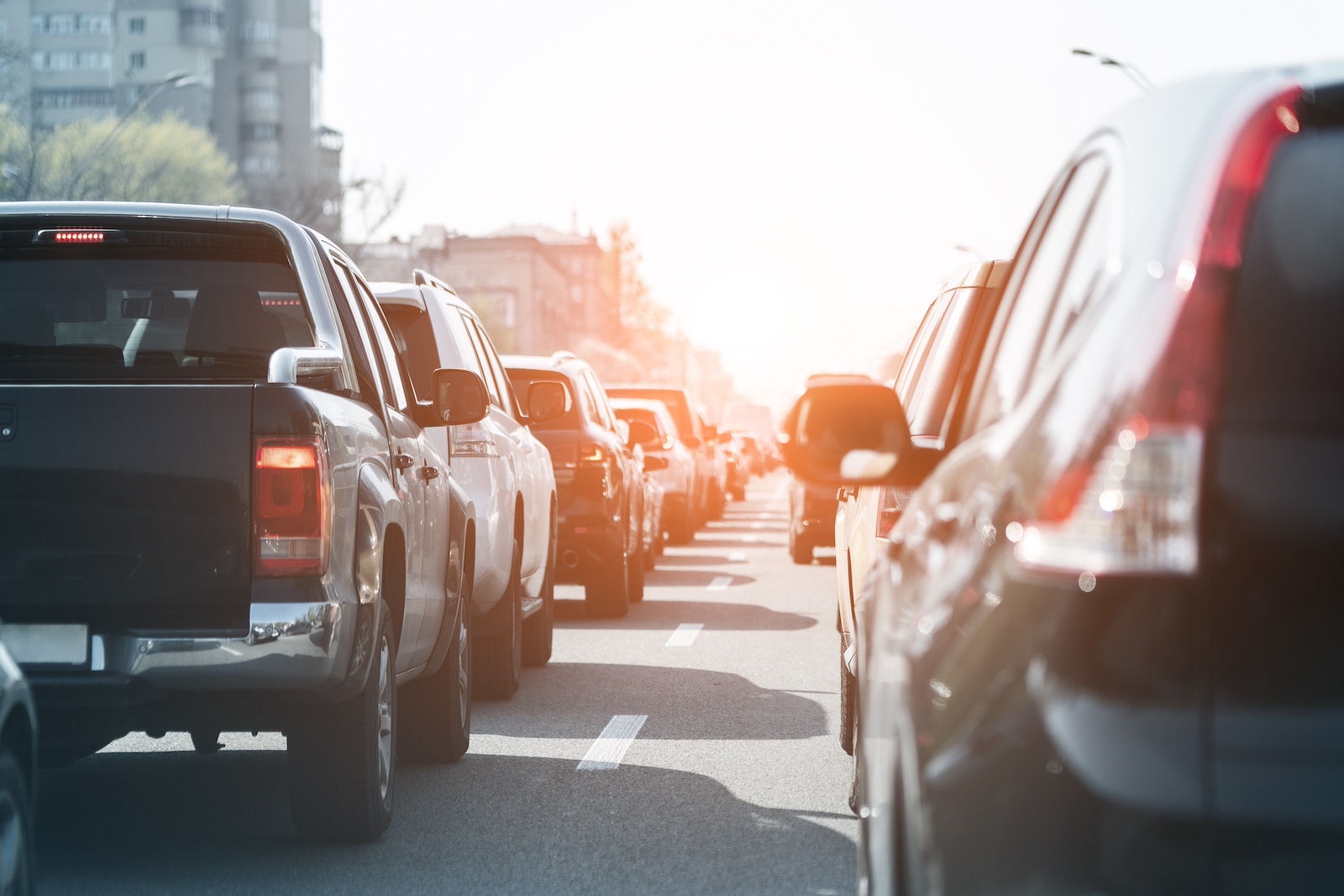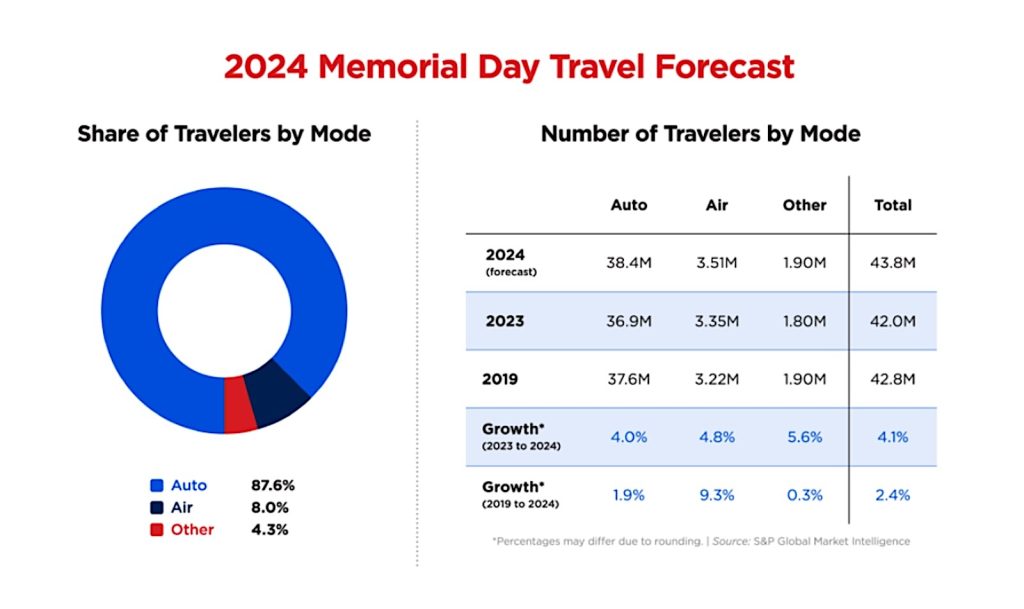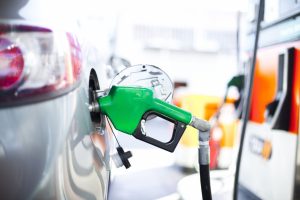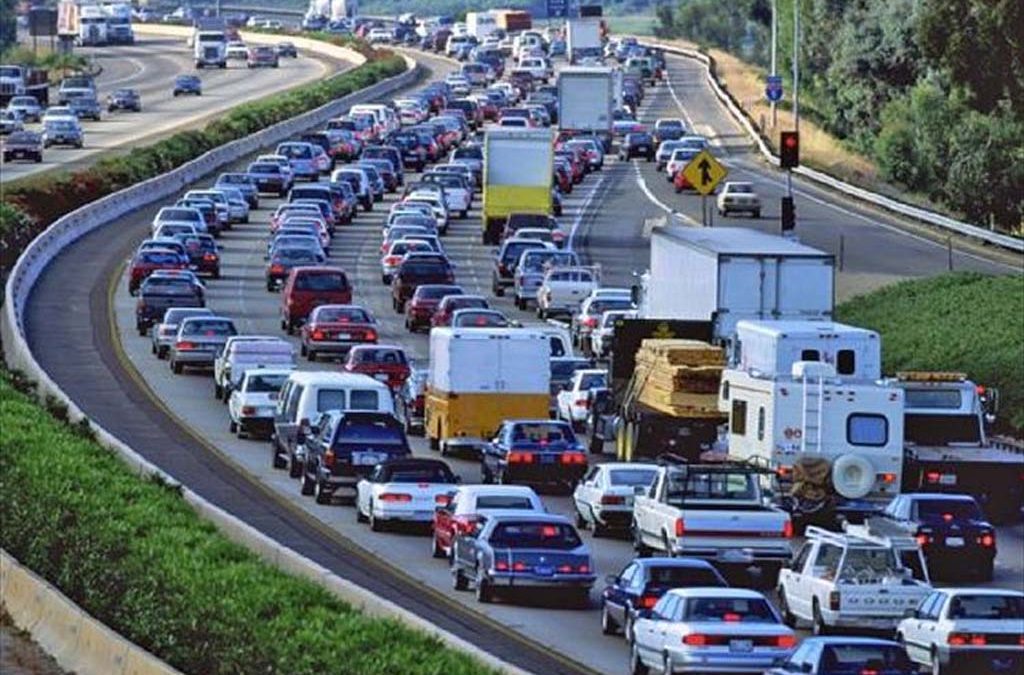Experts project more than 38 million people will take to U.S. roadways this Memorial Day weekend. The record number of travelers may face traffic delays but will fortunately not see an uptick in gas prices compared to last year.

More than 38 million Americans will drive 50 miles or more during the holiday weekend. That will be a new record and 4% more than last year.
The total number of drivers on the road is predicted to rise 4%, according to AAA, which began tracking these numbers in 2000. The 38.4 million people traveling by car, truck or SUV will set a new benchmark. Overall, 43.8 million people will trek at least 50 miles from home during the three-day holiday weekend. That number is just shy of the 44 million who set the overall record in 2005.
“We haven’t seen Memorial Day weekend travel numbers like these in almost 20 years,” said Paula Twidale, senior vice president of AAA Travel.
“We’re projecting an additional one million travelers this holiday weekend compared to 2019, which not only means we’re exceeding pre-pandemic levels but also signals a very busy summer travel season ahead.”
Gas prices
The national average price for gas during last year’s holiday weekend was $3.57 and after a bit of a runup this Spring, it’s at $3.62 a gallon. The lowest prices will be found across the Southeast, South (except Florida), and Southwest ranging from $3.06 and $3.32 a gallon.
Gas prices are typically highest on the West Coast and that remains true this weekend with prices ranging from $3.78 to $5.16, with California being the highest at $5.16. It’s nearly $1 higher than any other state in the country. Mississippi is currently boasting the lowest price at $3.06. Diesel prices are averaging $3.91 a gallon.
The recent release of 1 million barrels of oil from the national emergency reserves by the Biden administration may keep prices steady during the holiday, but that remains to be seen.
Best time to travel
Drivers leaving Thursday or Friday should leave early to avoid running into daily commuters, according to INRIX, a provider of transportation data and insights. When heading home on Sunday or Monday avoid the afternoon hours when return trips will peak. 
“Travel times are expected to be up to 90% longer than normal. Travelers should stay up to date on traffic apps, 511 services, and local news stations to avoid sitting in traffic longer than necessary,” said Bob Pishue, transportation analyst at INRIX.
The best times to travel on Friday are before 11 a.m. and after 8 p.m. while the worst times are between noon and 7 p.m., INRIX officials noted. Travelers should leave before 1 p.m. on Sunday and after 7 p.m. Monday to avoid delays coming home.
Traveling safely
With a record number of people hitting the roads, the potential for crashes rises significantly. The National Safety Council predicts 418 people may die in an accident during the three-day weekends, which is 11% less than last year.
“There’s no question infrastructure plays a significant role in traffic safety, but so does driver behavior.
“This coming holiday weekend and always, NSC calls on all road users to put safety first to prevent crashes and save lives,” said Mark Chung, executive vice president of roadway practice at NSC.
The organization offers several suggestions for driving more safely and, ideally, coming in under that predicted number. Those recommendations include:
- Prepare before you go: Before hitting the road, make sure your car is safe for driving. Vehicle owners should check the oil, put air in the tires, and check for and repair open recalls. Visit org to see if your vehicle has an open recall, and get it repaired for free.
- Buckle up: Lack of seat belt use is a top cause of fatalities in crashes. Buckle up, while also making sure you haveappropriate car seats installed correctly.
- Designate a sober driver or arrange alternate transportation: Holidays are a cause for celebration, but alcohol is only one cause of impaired driving. Drugs, including opioids, marijuana and some over-the-counter medicines, can cause drowsiness, alter visual functions and affect mental judgment and motor skills.
- Slow down: Speeding is a factor in more than a quarter of all traffic fatalities. Drive the speed limit or below it if conditions dictate. Be sure to pay close attention to those walking and biking in order to keep all road users safe.
- Drive distraction-free: Thousands have died in car crashes involving cell phone use. Put your phones away and #JustDrive.
While not something you can do while driving, when your done, the NSC reminds to check your back seat. Pediatric vehicular heatstroke is still the leading cause of non-crash motor vehicle-related fatality for children.
In 2023, 29 children in the U.S. are reported to have died because of this completely preventable tragedy. Always check your back seat for children or animals when you reach your destination.








0 Comments